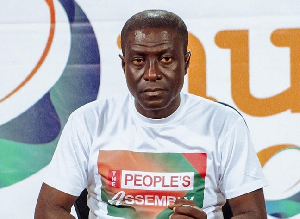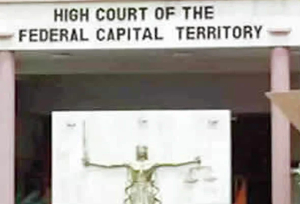Opinions of Wednesday, 24 October 2007
Columnist: Amoyaw, Sandy
The 2004 General Elections: Vote Of No Confidence
In some ways, though, this article does not put to rest the concerns raised by those who feel the 2004 was rigged. Albeit some people feel the elections were fair and honest, others criticize it as cynical and not transparent. Not surprisingly, others consider the cynics interpretation of the outcome of the 2004 elections as falling, predictably, along party lines. I have tried to reach conclusions about the results of the 2004 elections without allowing any political preconceptions to color the interpretation. Also, offering some suggestions to avoid future voting irregularities is the focus of this vignette, plus this article is intended to call attention to the reported 2004 votescam and the possibility of the impending 2008 general elections to go the same route. If the elections are rigged again in 2008, despite anticipated unprecedented public dissatisfaction, the same old faces will be elected once again and the modus operandi will maintain the status quo-CORRUPTION.
Some entrenched corrupt politicians know that they are the object of public dissatisfaction, and they know this will continue to Election Day 2008 to end their reign, consequently there is the tendency for them to leave no stone unturned to perpetuate their reign. If the 2004 votescam scenario is revisited in 2008 in dozens of places all across the nation, a new day will quietly dawn in Ghana-UNVERIFIABLE, RIGGABLE vote tabulation. At the moment, survey research reflects a generic public preference for Prof. Atta-Mills victory next year. If Prof Mills does not win the elections in 2008 then the next president of Ghana may not be chosen by the voters. Instead, he may be the choice of whoever controls or manipulates the election process. Needless to say, the government, indirectly, controls the election process therefore Ghanaians expect the government to assist the electoral commission to conduct a fair and flawless election in 2008 to avoid any election malfeasance. Otherwise Ghana?s fundamental democratic institution is ripe for abuse.
In vote counting a deeper problem lies in the security and integrity of the ballot box. This security and accuracy problems were, ostensibly, manifested in the 2004 elections when it was purported that ?PANDORA?S BOXES? were utilized instead of ballot boxes. There have been a lot of prescient stories, filled with startling facts about the possible outcome of the 2008 elections. It is paramount for the Electoral Commissioner to authorize a study to find significant accuracy and security problems in the methods used to count the 2004 votes. The recommendations from this study should be used to revamp the standard operating procedures of the electoral commission.
Furthermore, our electoral system lacks reliable audit trails. These audit trails document election results, as well as general practices to assure accuracy, integrity and security. It is ridiculous for our country to run such haphazard, easily violated election system. If we are to retain confidence in our election results, the EC must institute adequate security procedures in vote tallying. Now, more than ever, elections at every level are high stakes, big business, with candidates and special interests campaign expenditures running into the billions. What contribute to voter fraud are bureaucratic inertia, ineptitude and a fair amount of corruption that nobody cares about. For those of us who care, we are offering this kind of available solutions to rectify this appalling problem. Although there are many possible ways of shoring up the sieve of voting security, we can still rely on the public to trust a few election officials who will somehow ?certify? that the voting is both honest and impenetrable.
Once upon a time, Ghanaians voted without incident (PNP vs UNC). At the end of the day after polls had closed, neighborhood people, party representatives, worked together to count the votes in the polling stations before the votes were sent to the Electoral Commissioner?s office in Accra. This is the only way to insure a verifiable election. Variations of method are possible, but the elements of physical ballots that are counted and posted at the polling place before the ballots leave each polling place are essential to insure a fair and honest count. To rig an election with the above safeguards built in, one would have to bribe many hundreds of neighborhood people, including election officials in each polling station you hope to rig, and this is almost impossible to accomplish. Finally, the group of people bribed at each polling station would only have access to a tiny fraction of the vote. If there are no adequate and proper safeguard against vote fraud to distort the elections then thousands of our votes can be switched in the blink of an eye and no one would ever be wiser!
However, it would seem that any solution which does not allow all phases of the vote-counting process to be done in the bright light of day, with full rights of challenge extended to every citizen, is doomed never to win the confidence of those who still care about the vote. Despite the lack of national media focus on the problem of voter fraud, the gullibility of the Ghanaian voter is wearing thin and a rising sense of distrust appears to be seeping into the mind of the voting public.
The Electoral Commission exists for two reasons: to guarantee that the results published on election night are in fact what the people voted for that day, that is, the will of the people: and more importantly to ensure in a way that can be verified that what the people voted for in thousands of neighborhood polling places is what shows up as the final results. It does not matter how many pieces of literature are distributed, or how much campaigning is done, or how much shouting goes on, or how many debates the candidates have?if the votes are not counted accurately.
It is not my job, or your job, to prove that votefraud has occurred in any given election. It is the job of the Electoral Commissioner to prove to us, the public, that sufficient safeguards are in place to prevent votefraud, as far as is humanly possible. Can someone explain why the suit filed by NDC to challenge the 2004 election is still in court after two years? It was also reported recently that the electoral commission has started destroying the 2004 ballot boxes. What if the plaintiffs would need the ballot boxes as exhibits in their law suit?
The Electoral Commission together with the ?mainstream? news media, are maintaining, both explicitly and implicitly, that the 2004 elections are verifiable and above reproach. This pretense is an objective fraud. It is a fraud which involves an essential cornerstone of freedom in our country: the right to vote, which includes the right that our vote be counted accurately. Without these rights, the ?Freedom and Justice? on our coat of arms is a meaningless phrase
Whether the votefraud is limited to the objective deception that vote counts are safe and verifiable or whether it extends to include the silent rigging of our elections by the silent votefraud in 2004, as we all believe to be the case-either way- this article is aptly titled, ?THE 2004 GENERAL ELECTIONS: VOTE OF NO CONFIDENCE?















